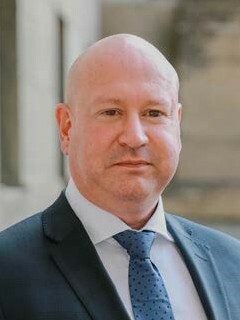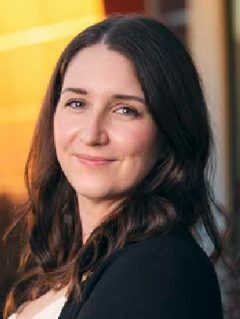Staying Well During the Pandemic
While traveling might be a distant memory right now, we all recall the instructions we receive before take off. In the event of a drop in pressure, put on your own oxygen mask first, so you will be able to assist those beside you who may need your help.
When it comes to providing patient care during this pandemic, similar instructions have been given to physicians and other health care workers about wearing medical masks and other personal protective equipment. Don it correctly before interacting with patients, so you’ll be able to continue providing care to others.
It’s hard to go a day without hearing the acronym “PPE” lately, with such a focus on protecting health care workers from infection.
But shouldn’t the very concept of being “personally protected” go beyond just masks and gloves? What about the “psychological PPE” needed to protect physicians against the stress, burnout and distress the pandemic can cause?
A survey of Canadian physicians from before the pandemic found that nearly one third reported burnout or depression. Practicing medicine is a high- pressure, high risk job at the best of times, and the pandemic only adds to this.
It should be no surprise that emerging studies during the pandemic, from around the world, are finding this issue is only becoming more prevalent, suggesting 40% to over 80% of physicians in some settings are struggling with distress, burnout or other mental health challenges because of COVID-19.
Dr. Cory Baillie, President of Doctors Manitoba, is concerned. “Physicians are facing layers upon layers of pressure,” he explains. “They are worried about continuing to care for their patients. They are facing longer hours. Some are facing stigma from family members worried they might bring the virus home from work. And, to top it all off, it has been tremendously difficult to get the information and support we need from provincial authorities to feel safe and confident about the pandemic response.”
No physician is immune to the risk of burnout, depression, anxiety and distress during this crisis.
The concept of psychological PPE, coined by the Institute for Healthcare Improvement, draws a parallel between preventing the risk of physical harm from infection, and preventing the risk of psychological harm from the stress, burnout and fatigue that accompanies emergency responses. This is especially true in prolonged and uncertain crises like the one we find ourselves in today.
Dr. Baillie explains he has never seen the levels of stress and signs of burnout among his colleagues that he is seeing this fall. “I am feeling it myself,” he says, adding that “while the symptoms across physicians may be similar, the causes of that stress and the solutions to it are very personal and vary doctor-to-doctor.”
There are several resources available to support physicians through these unspeakably difficult times. Existing services are on stand-by, such as the 24/7 Physician and Family Support Program. Doctors Manitoba has developed a Guide to Staying Well During the Pandemic and a series of webinars have been offered to help physicians worried about burnout themselves or in their colleagues.
You will also find tips on the following pages from a diverse group of physicians from across the province about how they have been coping through the pandemic.
| Physician Health and Wellness Services |
|---|
| All members and others in their household have 24/7 access to the Physician and Family Support Program, offering counseling and referrals. Help is a phone call away at 1 – 844-4DOCSMB (436−2762). There are also services available through MDCare and Physicians At Risk. |
| Staying Well During the Pandemic |
|---|
| Our guide brings together physician-focused advice from a variety of resources. Building resilience and coping with stress and burnout is not one-size-fits-all. Rather, a personal approach is needed. Access the guide at DoctorsManitoba.ca/covid |

Dr. Brent Roussin
Chief Provincial Public Health Officer
I am a privileged person. I have been able to stay well despite the long hours and stress because of the support in my family and my baseline health. I found that during the peak of the first wave, working seven days a week and all the days starting to look the same with 14-hour days, I set aside time with the family. We all agreed that no matter what time I came home from work, we’d all be sitting down around the table eating together. Sometimes that was quite late at night, but everyone understood. I try to find time to get some activity and exercise in, and some reading that isn’t medical.

Dr. Kristine Smith
Surgeon
We had a conversation in our house and decided it was best we cancelled our gym membership and donated the money back to the centre. For exercise we bought a home fitness station and we often walk our dog, Yoho. Being social is important to us too. We have found ways to stay in touch with friends and family. For example, we do this thing where one couple makes a signature cocktail, drives it to the homes of a few friends, and over Zoom we all share the same drink at the same time while we catch up.

Dr. Lerly Luo
Resident
I would definitely say, reach out if you’re struggling. Because we’re all struggling. I really wanted to find out what my co-residents were going through, so I reached out, and talking to them was so cathartic. It feels like a togetherness, and normalizes the loss, the difficulties, the challenging cases. Just feel that much more connected. I’ve also been going hiking and trying to see as much as I can of the province. I’ll often put a song on at home and just dance by myself – even though I’m a terrible dancer! Laughter is good for the soul. Self-care isn’t selfish.

Dr. Cory Baillie
President of Doctors Manitoba
I’m fortunate to have several ways to remain physically and mentally well during the stresses of the pandemic. My wife and I have a new puppy so we’ve been doing lots of walking through Assiniboine Park. I’ve been committed to exercising, early morning boot camp at the gym (before Code Red), and now at home on the bike. I’m also fortunate to have a supportive group of colleagues who are always happy to chat or text when we need each other.

Dr. Danielle Paradis
Rural Physician
I have made an effort to keep in touch with friends and family, and in a lot of cases that means virtually. As much as possible, I try not to be consumed by the medicine bubble. I consciously limit my time on social media and watching the news. I do my best to focus on other things. After a long day at the hospital I have been focusing on eating healthier foods and get more exercise.

Dr. Kendiss Olafson
Critical Care Specialist
During this unprecedented time, so many things are beyond our control. It is important to recognize that we can’t solve every problem and to be kind to ourselves and those around us. Exercise and enjoying nature, along with yoga and practicing mindfulness, help me to manage stress. I remain present and be in the moment, especially when I am at home with my family.

Dr. Sara Goulet
Northern Physician
COVID-19 has helped me to find balance in my life. It’s helped me to identify what’s really important, like my family, date nights with my husband, reading books and taking time to exercise and time for myself in and amongst the chaos of daily life.

Dr. Yvette Emerson
Doctors Manitoba Board Member
At home, I am appreciating and enjoying the slower pace of life. I am seeing opportunities to do things, I never would have had time for before. I walk various trails daily with my dog. I am learning and playing a number of different strategic table top games with my sons. Practicing kindness is a good way to cultivate gratitude and lift my spirit.